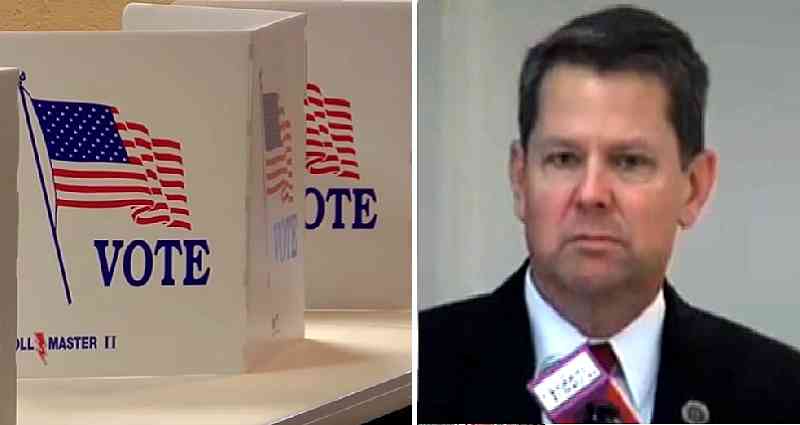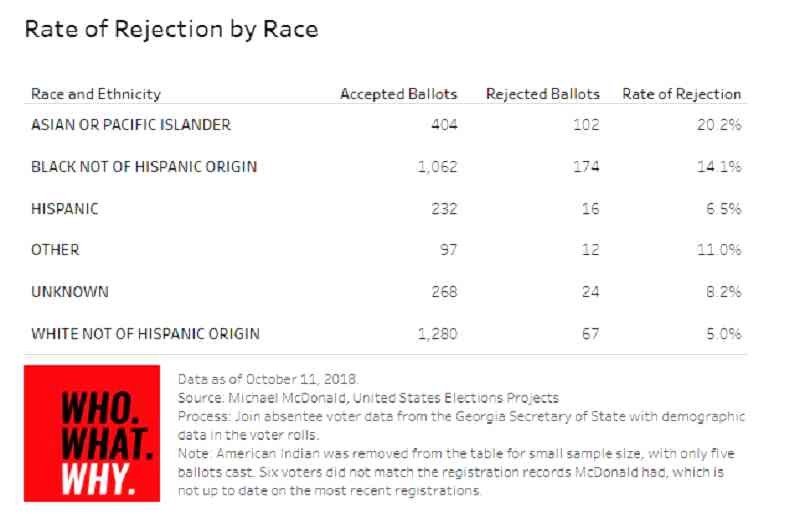Asian American Voters Have the Highest Rejection Rates in Georgia



By Ryan General
October 17, 2018
State and local election officials in Georgia are facing a lawsuit after it was revealed that there are high rejection rates of absentee ballots in Gwinnett County.
Ballots from POCs are being rejected disproportionately at a rate that is, for Asian Americans and Pacific Islanders, about four times higher and for African Americans is about three times higher than White voters.
With a rejection rate of over 20%, 102 out of 404 absentee ballots cast by Asian Americans have been rejected. Meanwhile, 174 out of 1062 Black ballots were rejected, which accounts for a rejection rate of over 14%.

Reasons for the rejections included voters allegedly listing that day’s date instead of their birth date, and signatures not matching the signature on the voter registration card.
Despite making up only 12% of Georgia’s mail-in ballots, the diverse Gwinnett County has accounted for 40% of its rejected ballots. Gwinnett’s residents are 62% nonwhite, with 25% of residents being foreign-born.
The Gwinnett County Board of Registration and Elections, as well as the state board of elections and Georgia’s Secretary of State Brian Kemp, were named as defendants in the complaint filed by the group Coalition for Good Governance on Monday.
Kemp, a Republican who is running for governor against Democrat Stacey Abrams, is heading the ballot verification. Abrams is vying to be the first female African American governor in the country.
According to CNN, Kemp has also been accused by civil rights groups of enforcing a voter purge against minority voters in the lawsuit filed by the Campaign Legal Center and Lawyers’ Committee for Civil Rights Under Law last Thursday.
According to CNN, Kemp has also been accused by civil rights groups of enforcing a voter purge against minority voters in the lawsuit filed by the Campaign Legal Center and Lawyers’ Committee for Civil Rights Under Law last Thursday.
Danielle Lang, senior legal counsel at the Campaign Legal Center, said the groups were suggesting Kemp had taken steps to enforce his authority as restrictively as possible.
“As secretary of state, you have discretion about the policy you put forward to enforce that law,” Lang said, “and I have seen no evidence of any policy put in place by Secretary Kemp that would minimize who would get (unduly) caught in this net.”
Share this Article
Share this Article